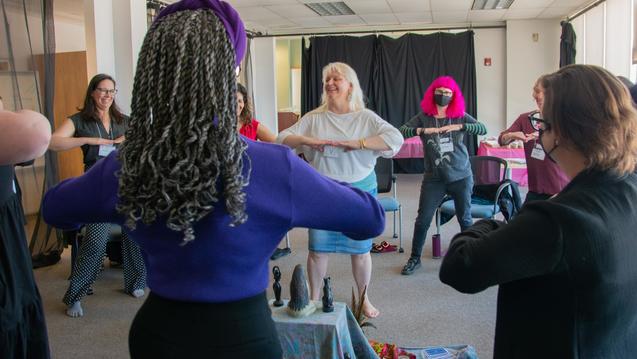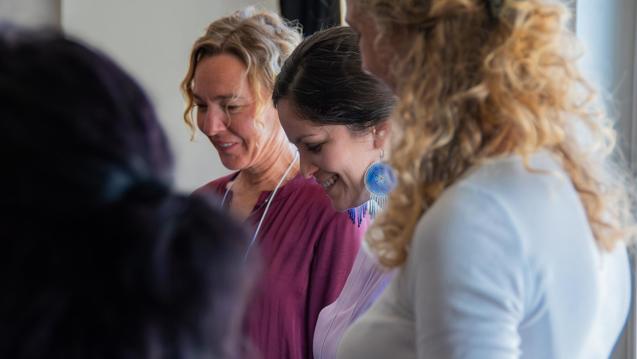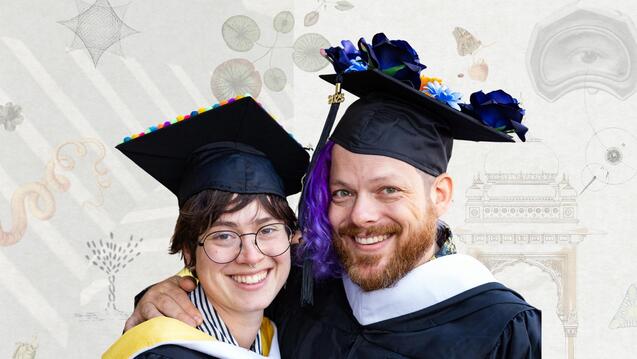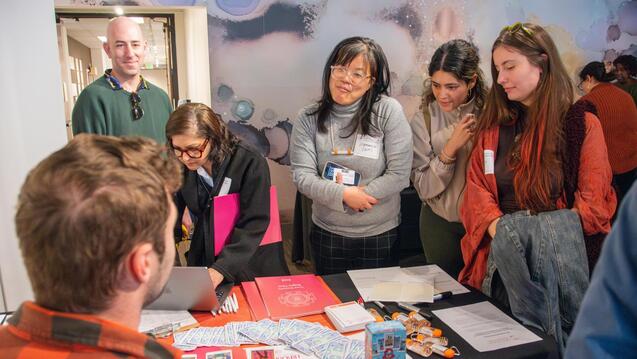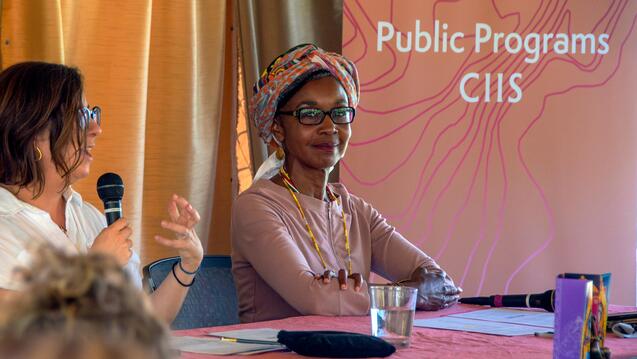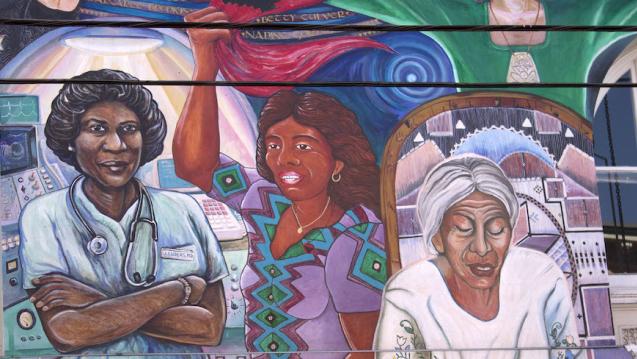An online event with Admissions Counselors Skylar Hall and Ronda Sharp
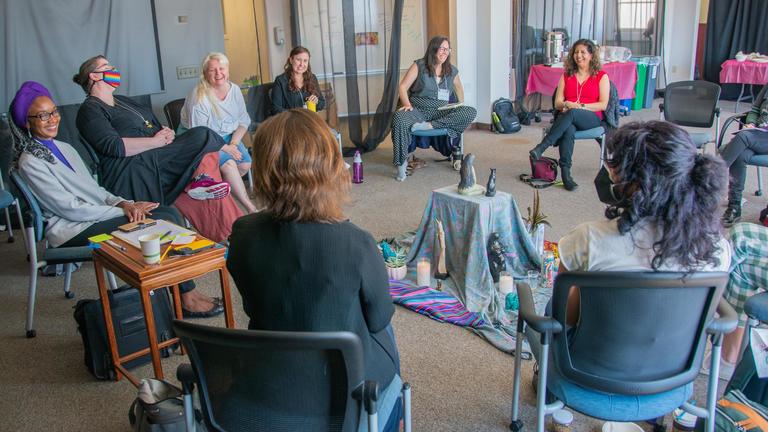
Department of Women's Spirituality
Exploring the convergence of philosophy, gender studies, and social justice
Our Women's Spirituality programs at CIIS are rooted in deep exploration as a means to create extraordinary change.
The Department of Women's Spirituality envisions a new kind of scholarship, one that puts our interconnectedness at the center of all that we know and do. We offer a transdisciplinary, multicultural, and socially engaged approach to the study of gender and spirituality.
In Their Own Words
Hear what our faculty and students have to say
Women's Spirituality Curriculum Areas
Our curriculum incorporates scholarship from women and gender studies, ethnic studies, religious studies, philosophy, and other related fields. Deepen your academic and personal inquiry in these areas of study.
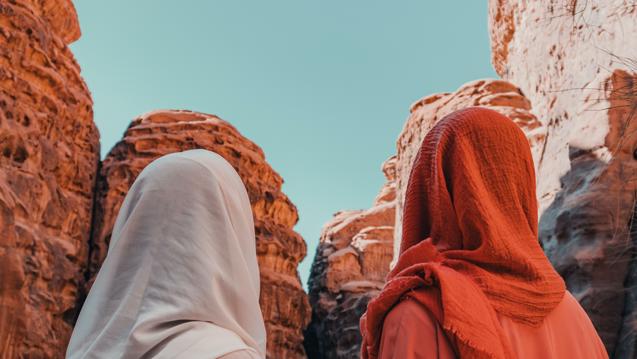
Women and World Religions
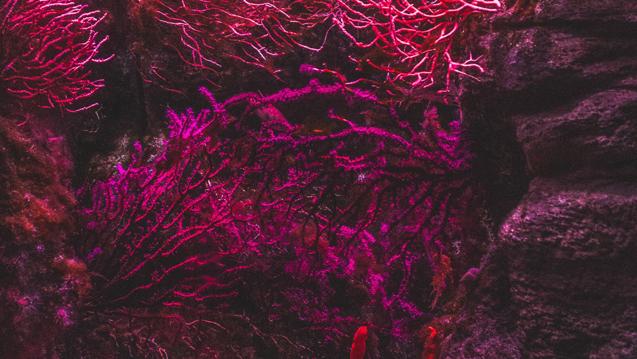
Feminist and Ecofeminist Philosophy & Activism

Women's Mysteries, Sacred Arts & Healing
We affirm all women – including poor and working-class women, trans women, disabled women, undocumented women, and women of all colors and nationalities, particularly those who are often overlooked in mainstream discourse. We recognize not only women’s economic and political struggles, but also our agency, resilience, and connection to the sacred spark within.
We do not espouse a singular spiritual framework or approach to feminism. Instead, we support students in undertaking their own rigorous inquiry into and across any traditional academic field, including ecology, philosophy, history, and others. We also invite students to articulate their spiritual growth and transformation, integrating personal spiritual values with commitment to social transformation.
Our Programs
We offer two degree programs to help you undertake your inquiry into the intersection of feminism and various spiritual frameworks – and beyond.
Where activism is a form of sacred practice.
Explore transpersonal and embodied ways of knowing with womanist, feminist, Indigenous and decolonial lenses.
Faculty Research and Scholarship
Our faculty are an accomplished and enriched group of instructors who offer different lenses and showcase multiple ways of knowing, teaching, and learning. Enjoy a glimpse into some of their work.
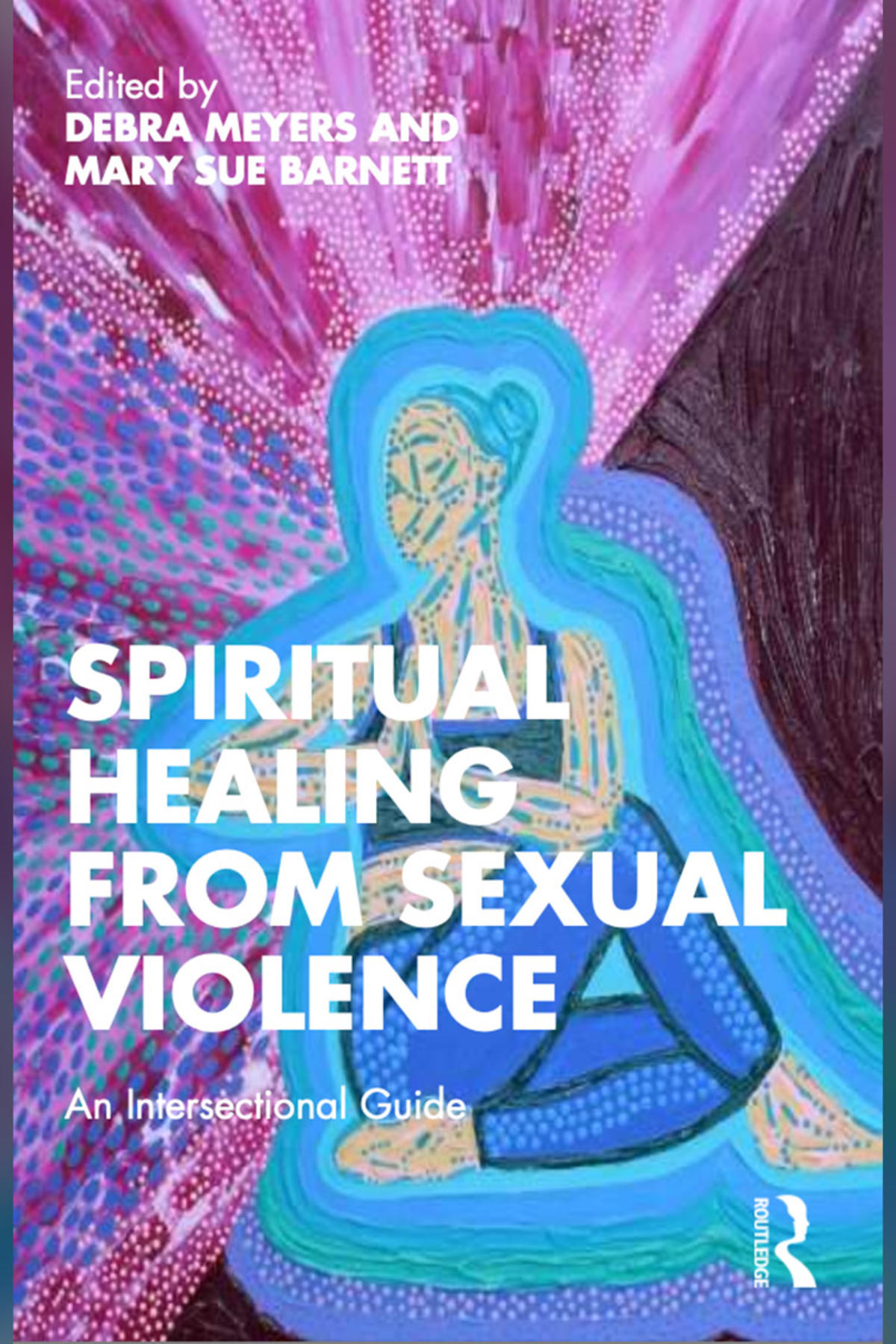
Spiritual Healing from Sexual Violence: An Intersectional Guide
Professor Annette Williams has written the incisive “Deconstruction and Reclamation: A Black Woman’s Healing Journey” for this collection of intersectional essays for individual healing and societal reform. Spiritual Healing from Sexual Violence: An Intersectional Guide offers intersectional options for adults to establish pathways for recovery.
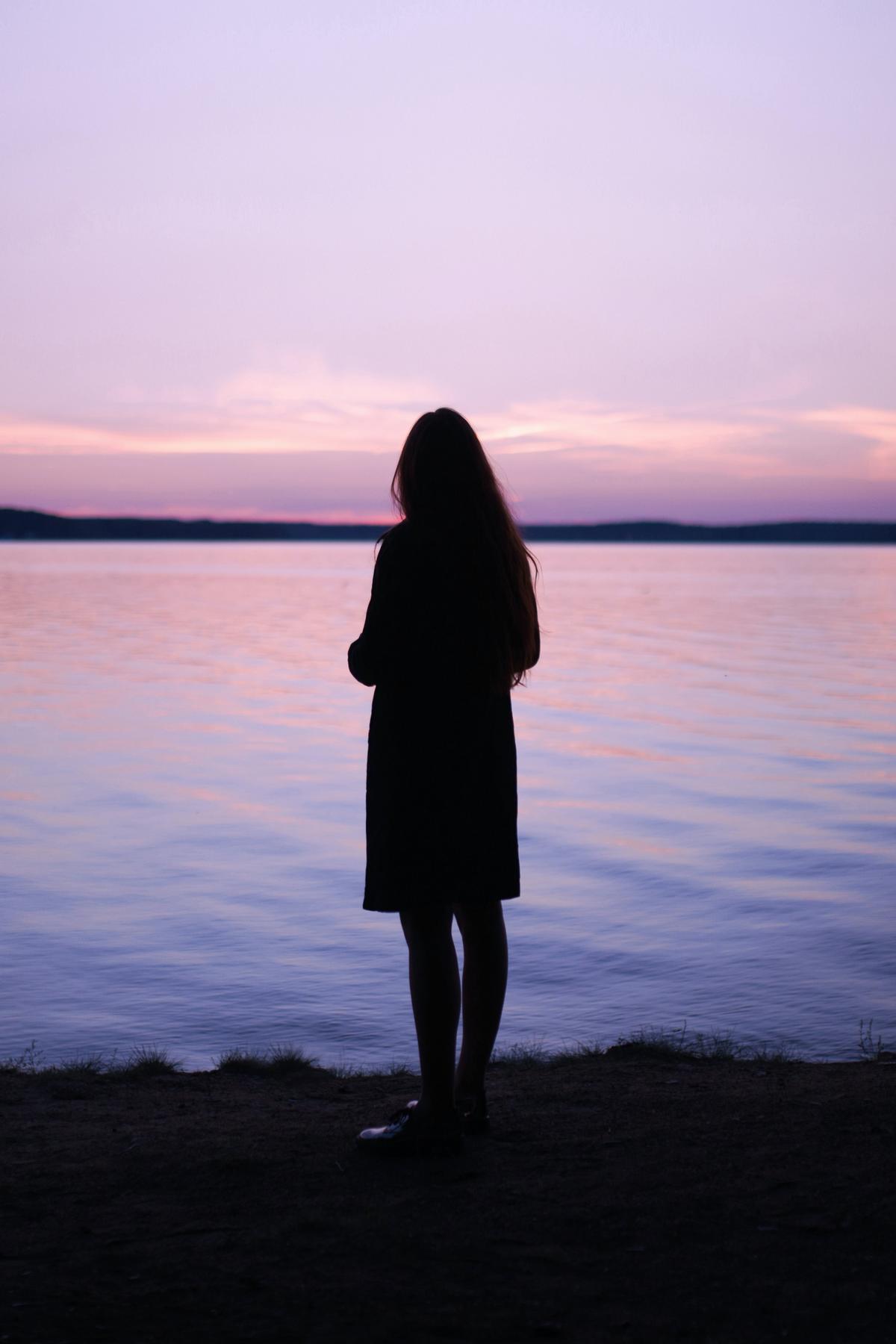
Sensitive is the New Strong
Professor May Elawar talks with author, international speaker, and cancer survivor Anita Moorjan about her latest book, Sensitive Is the New Strong, as well as her life and work teaching others to harness and foster their empathic gifts in today’s difficult, fear-based world.

Learning the Yantras with Dr. Sundari Johansen Hurwitt
In this short, interactive class Professor Dr. Sundari Johansesn Hurwitt creates a playful space to explore the concept of Yantras.
FAQs
-
The time it takes to complete the Ph.D. varies greatly depending on whether you enroll part-time or full-time and the time it takes you to conceptualize and develop an original dissertation project. The average time that our Ph.D. students take is between four and seven years.
-
See below for a short list of some of our esteemed graduates and their professional titles:
- Cecilia Naomi Lipp, Executive Director, International Action Network for Gender Equity & Law
- Lorin Jackson, Public Services Librarian, Scholar and Activist, AIDS Library
- Anna Joyce, Psychotherapist
- Marisa Manriquez, Healer, Yoga Instructor, Artist, Life Coach, Soul Witness
- Nadirah Adeye, Faculty Relations Manager, Shift Network
- Leilani Birely, Priestess and Founder, Daughters of the Goddess
- Chandra Alexandre, Founder and Executive Director, SHARANYA: A Devi Mandir Goddess Temple
- Cristina Rose Smith, Professor, Gender and Ethnic Studies, California State University, Dominquez Hills, CA
- Eahr Joan, Reference Librarian, CIIS
- Marcelle Williams, Co-Chair, The Women's Caucus at the American Academy of Religion and Society of Biblical Literature
- Marion Dumont, Editor, Myths Shattered and Restored
- Deborah Santana, Author and CEO Founder, Do A Little Foundation
- Tricia Grame, Visual Artist
- Sandy Miranda Radio Producer, KPFA
-
You are not required to take the GREs for admission into the program.
-
CIIS is accredited by the Western Association of Schools and Colleges-Senior College and University Commission (WSCUC).
-
Our graduates fill a number of roles and leadership positions in various fields—academia, research, policy making, education, social entrepreneurship, nonprofits, creative arts, restorative justice, and many more. Our program has a strong emphasis on social justice and seeks to make an impact on the world at large by providing students with the tools to think deeply and critically about local and transnational issues, and to affect change through an integrative approach to education that values the spiritual dimensions of our human experience.
We recognize that there is no clearly paved career trajectory for someone with a degree in women's spirituality; much depends on a student's objective, self-motivation, and entrepreneurship. Students tailor their studies to their specific areas of interest, and our graduates have diverse careers. Our curriculum includes a course on vocation design to give students tools for career creation.
-
The Women's Spirituality program is interdisciplinary, so dissertations may cover a wide range of topics.
-
"I realize that I am capable because of the program. This power helps me set my priorities and goals in a way that puts me first in my professional life. Too often our needs are neglected as women, and more specifically as women of color. I had practice in the program to respectfully disagree and assert my personal values in an academic way that helps me continue to shape my professional identity and energy." —Lorin Jackson
"This degree resulted in enormous changes in the way I felt about my work. Through spending time with the curanderas, the way I worked began to evolve as well.... The fact that all life and growth take place within a spiritual journey was more prominent in my assessment of and solutions to client challenges. I began to view my work as a true healing art." —Anna Joyce
"All I have learned from the classes, my teachers and ancestor spur me forth to share the forgotten and lost knowledge that is so powerful and that can become a vehicle for womyn to move together in sisterhood. Our foremothers left legacies for us to inherit. It is our right and blessing to join together to reclaim, preserve and perpetuate the traditions and ceremonies of our ancestors." —Leilani Birely
"My five years in the program deepened my engagement with caring and abundant epistemologies and ontologies. With mentors and teachers at and connected to CIIS, I was nurtured and encouraged to seek out the gifts of my motherline-women of color who survived and thrived because of their intuitive strength. The ‘mothering' I received at CIIS helped to develop my goals in my own classrooms. I see myself as part of the lineage of women who have come through the program and I am now passing on my own intuitive strength to my students, most of whom are women of color. The knowledge and wisdom of matriarchal and indigenous and POC perspectives is what I share, and it is my responsibility and honor." —Cristina Rose Smith
"I had always had a passion for seeking out the unheard voice and the program gave me the tools and structure to continue the last segment of my graduate career on a path that was not only familiar, but was lacking in my higher ed career. The PhD has supported my exploration of women's voices, but it has also given me the ability to network and find a group of women who support women's words and voices within the academy through the Women's Caucus at AAR/SBL." —Marcelle Williams
"My life has always been about spirituality and social justice. I returned to CIIS to earn my MA to better understand the disparities in the world for women and to be able to articulate women's voices and leadership in my work, which I call spiritual activism." —Deborah Santana
On Being an Ethical Psychic with Jennifer Lisa Vest and Annette Williams
Associate Professor and Chair of the Women’s Spirituality program Annette Williams talks with Afro-Indigenous intuitive healer and scholar Dr. Jennifer Vest in this illuminating conversation exploring how psychics and energy workers can build an authentic, equitable, and culturally sensitive healing practice.
Our Upcoming Events
Attend our in-person event on January 31 or online event on February 21.
An Online Overview with Jennifer Gruczelak and Ronda Sharp


Our Department in Action
Women’s Spirituality Co-Chair and Associate Professor Annette Williams is retiring this year after an illustrious career.
The Department of Women's Spirituality honors International Women's Day by challenging oppression, sharing wisdom, and fostering justice, liberation, and community healing.
Exploring the Department of Women's Spirituality and celebrating with two events



